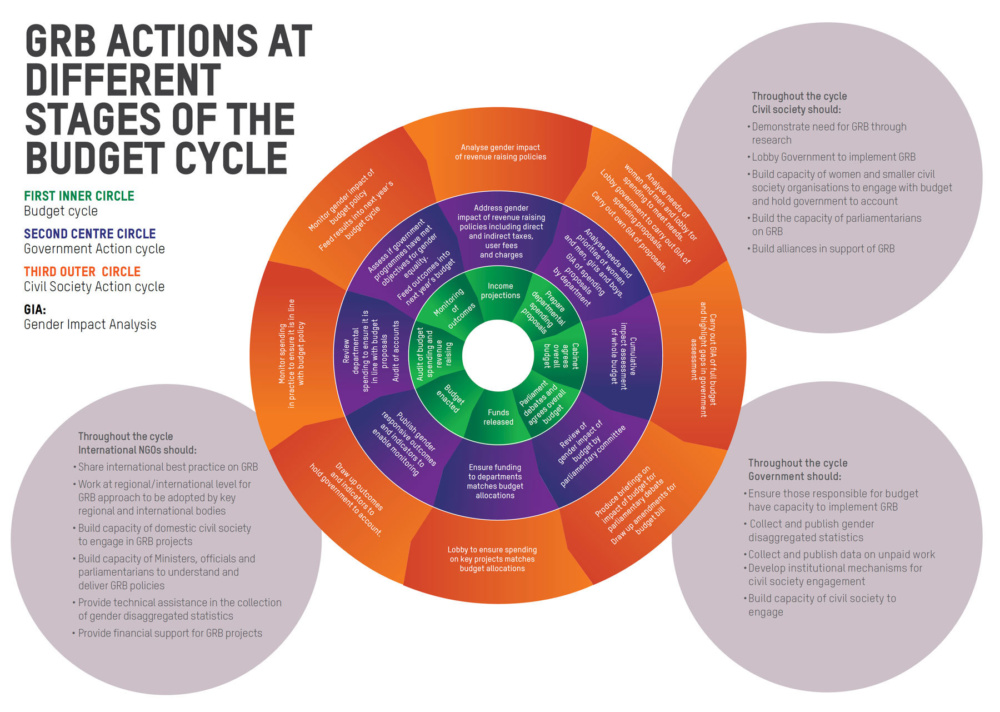The budget remains a key focus of activity for the WBG every year. In advance of the budget WBG produces briefings on a range of policy areas, including health, social care, childcare, education, housing, violence against women and girls, employment and public sector pay. We produce an analysis of the budget every year. We also produce briefings for parliamentarians during debates on the budget in parliament.
Today WBG works throughout the year. Our work includes:
Carrying out research
We do this in a number of ways:
Analysing existing research to highlight its gender implications. We don’t always have the resources to carry out primary research in every area, so we use analysis by reputable research organisations to provide evidence for our own briefings. For example, recent briefings on health and education spending have quoted findings by the Institute for Fiscal Studies showing that spending on schools and health has fallen in real terms, to show the implications of this for women and girls.
We also use data collected and published by government. For example, we use data on employment and pay from the labour force and earnings surveys (major national surveys published by the Office for National Statistics) to analyse the gender employment gap and gender pay gap.
Distributional analysis. We use the microsimulation model developed by a British economic consultancy company called Landman Economics. They analyse the cumulative impact of changes to tax, benefits and public services by gender, race and income (for more information see Case study 4: Cumulative Impact Analysis).
Qualitative analysis. We have drawn on research by our members and worked with our academic networks and civil society partners to carry out our own research into the impact of economic policies on the lives of women and girls, through interviews and focus groups with individual women (for more information see Case study 3: Public Services and Case study 10: Working with Other Civil Society Groups).
Communicating our analysis to policy-makers and the public
As well as briefing parliamentarians and the media on our analysis of the budget each year we also:
Respond to consultations. We submit evidence to consultations carried out by government, political parties, national and international bodies. For example, we have provided evidence on the impact of austerity policies on women to the UN Independent Expert on Foreign Debt and Human Rights.
We have also contributed sections to the UK Shadow Report to the CEDAW (UN Convention on the Elimination of All forms of Discrimination Against Women) Committee. Shadow reports are a way for civil society groups to highlight issues for the committee to consider when it examines a government’s record against the obligations of CEDAW.
Give evidence to parliamentary committees. We submit written evidence and have been asked to give evidence in person to various parliamentary committees. For example, we gave evidence to the Social Security Select Committee when it was scrutinizing a Bill to introduce Universal Credit, a new system of means tested cash transfers (sometimes called benefits or welfare payments). More recently we have given evidence to the Women and Equalities Select Committee, which was holding an inquiry into the UK government’s strategy to meet UN Sustainable Development Goal 5 on women’s equality.
Propose alternative policy approaches. Alongside analysing the likely or actual impact of government policies, WBG has proposed alternative economic approaches. In response to the austerity policies introduced by the Coalition and Conservative governments since 2010, we have developed Plan F, a feminist economic strategy for a caring and sustainable economy based on mutual support and respect for rights. At the 2015 election we used Plan F as the basis for our analysis of all the party manifestos.
Promote gender budgeting in government. We work to encourage government to adopt gender responsive budgeting policies, both through carrying out our own analysis and through providing advice on how gender budgeting can work in practice.
Build the capacity of civil society organisations. We have run training workshops and produced toolkits to enable women’s organisations and individual women to scrutinize economic policy and advocate at a local and national level.


